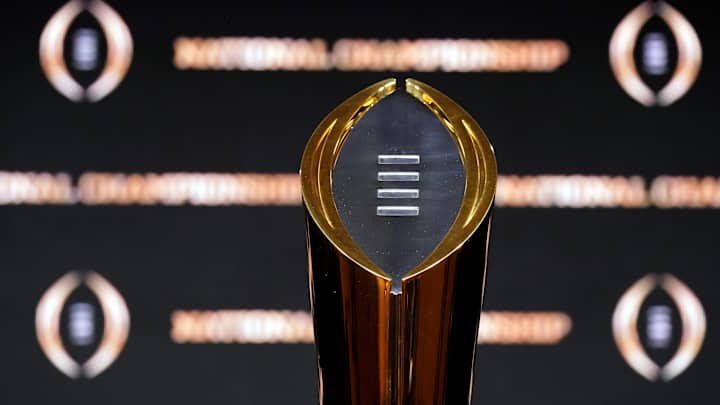A Jersey Guy: CFP Needs New Year's Day

The good news is that the 2020 college football season will have much clearer definition after the Rose Bowl and Sugar Bowl games on New Year's Day.
The bad news is that it doesn't happen EVERY year.
There was a time when New Year's Day was the most anticipated date of any college football season.
You might not have a resolution as to the annual "Who's No. 1'' question, but you would have conference champions facing off against each other in bowl games from coast to coast on New Year's Day from noon to midnight.
It was college football's day and even the NFL backed off competing against college football on January 1 (unless it fell on a Sunday, when the colleges would jump to January 2).
How much fun it was for a college football fan in the snow belt to celebrate the New Year's Day with treats such as majestic view of the Rose Bowl on New Year's afternoon and the spectacle of the Orange Bowl on New Year's night.
That changed with the advent of the BCS and now, for the past seven seasons, the CFP system in which the national championship ISN'T decided until after New Year's Day, sometimes two weeks after.
And, the BEST that New Year's Day can give us is a pair of semifinals in the Sugar and Rose Bowls, such as will happen on Friday.
That would be OK, I guess, if it happened EVERY year.
It doesn't.
Here's why.
When the BCS, which designated One national championship game morphed into the CFP with six New Year's Day bowl games and two semifinals and a championship game in 2014, the powers that be in CFB made a deal with the Sugar and Rose Bowls to keep their New Year's Day time slots (5 p.m Eastern for Rose and 8:30 p.m. for Sugar) permanent, even in the years those bowl were not CFP semifinal games.
That meant that when the other four New Year's Six Bowl games (Cotton, Orange, Fiesta and Peach) hosted semifinal games they could not play in the coveted New Year's Day-night 5 and 8:30 time slots.
Which means that we will get significant New Year's Day games only once every three years, played either on New Year's Eve or few days before New Year's Day when people were still working.
For the next two years, the CFP semifinals will be held on New Year's Eve—Saturday and Sunday. And then, in 2024 we will again have another New Year's semifinals doubleheader with the Rose and Sugar Bowls.
But after that, the semifinals are pushed up to Saturday Dec. 28th and Dec. 27th, with the Rose and Sugar (without real significance) played three and four days later on January 1.
This season, CFB will give us a triple header of New Year's Six bowl games on January 1, starting with the Peach Bowl match up between unbeaten and No. 8 ranked Cincinnati taking on No. 9 ranked Georgia. That will be followed by the Notre Dame-Alabama Rose Bowl game in Texas and the Clemson-Ohio State game in New Orleans.
On the surface it is a pretty good entertainment package, although the history of the CFP semifinals have been filled with mismatches.
There is also the added element of COVID-19 which has decimated the bowl system in the same way it created havoc with the regular season.
It may literally be a game time decision on whether the Rose and Sugar Bowl actually kick off on January 1.
CFP officials have already designated January 11 (the date set for the CFP championship game in Miami) and January 12 as make-up dates for the semifinals.
There is one possibility of major changes in all of this. If there is enough sentiment to create an expansion of the system to 8 teams before the existing contract expires after the 2025 regular season.
But that is a debate for another time.
For now, college football fans need to start their new year with a trio of New Year's Six bowl games on the right date and in the right time slots.
